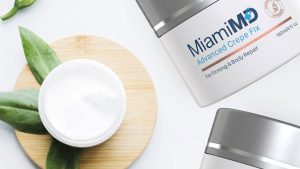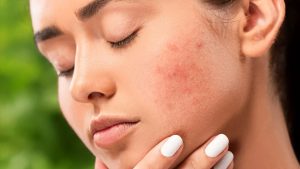How Often Should You Cleanse Your Face?

Cleansing your face might seem like a simple step in your skincare routine, but how often you cleanse can have a major impact on the health and appearance of your skin.
Whether you’re dealing with dryness, excess oil, or breakouts, the frequency of cleansing plays a key role in keeping your complexion balanced and radiant.
Keep in mind that every skin type and lifestyle is different, so there’s no one-size-fits-all answer. What works for someone else may not necessarily work for you.
So, how do you figure out the right facial cleansing routine for your skin? Let’s explore the benefits of cleansing, some best cleansing practices, and how cleansing supports healthy, radiant skin. We’ll also look at how your skin type and daily habits affect how often you should cleanse.
What Are the Benefits of Facial Cleansing?
Cleansing is the foundation of any skincare routine, no matter your skin type, and its benefits go far beyond just removing dirt and makeup.
According to Dr. Ava Shamban, a board-certified dermatologist, “Cleansing is the first step in allowing your skin to absorb active ingredients from other skincare products. It keeps pores clear and ensures your skin can function at its best” (1).
Here’s why cleansing is essential:
Hydrates Your Skin
Cleansing your face helps maintain your skin’s natural moisture balance.
By removing impurities, you’re allowing hydrating products like serums and moisturizers to penetrate more effectively. This step is especially important if you live in a dry or harsh environment, as proper cleansing prevents dehydration caused by external factors.
However, it’s crucial to choose the right cleanser for your skin type to avoid stripping away essential oils, which can lead to dryness or irritation.
Manages Irritation
Pollutants, sweat, and bacteria can irritate your skin and lead to redness or sensitivity. Regular cleansing helps wash away these irritants, reducing irritation and promoting a calmer, more even-toned complexion.
This is particularly important for people with sensitive or reactive skin, as cleansing removes triggers that can worsen irritation. If not managed, inflammation can also accelerate skin aging and worsen conditions like rosacea.
Prevents Breakouts
Nothing clogs pores faster than a buildup of makeup, oil, and debris, which can create the perfect environment for breakouts to form. By cleansing regularly, you’re helping to prevent acne and blemishes before they start by clearing clogged pores and keeping them clean. Skimping on cleansing can lead to clogged pores, which often result in blackheads, whiteheads, or painful cystic acne.
Dr. Shereene Idriss, a cosmetic dermatologist, emphasizes, “Proper cleansing is key for keeping acne at bay, especially if you’re prone to breakouts or wear makeup daily” (2).
How Does Skin Type Affect How Often You Should Cleanse?
When it comes to cleansing, not all skin types are created equal. The frequency and type of cleanser you use should align with your skin’s unique needs. This helps to avoid over-cleansing or under-cleansing, both of which can lead to unwanted issues like harming or stripping the skin barrier as well as dryness, irritation, or breakouts. Understanding your skin type is the first step in customizing your routine for optimal results.
Each skin type requires a different approach to maintaining balance and overall health, from dry and sensitive skin to oily or acne-prone complexions.
Let’s take a closer look at how to tailor your cleansing habits to your skin type:
Dry Skin
Dry skin requires a gentle approach. Cleansing twice daily (morning and night) or double cleansing might be too much for some people with dry skin, as it can strip away natural oils.
Instead, consider cleansing once at night to remove the day’s buildup, then simply rinsing your face with lukewarm water in the morning. Look for oil-based cleansers or pH balanced, hydrating cleansers with ingredients like hyaluronic acid or glycerin for skin barrier protection.
Oily Skin
If you have oily skin, cleansing twice a day is usually ideal. This helps control excess oil production and reduces the likelihood of clogged pores. Gel-based or foaming cleansers with salicylic acid or tea tree oil are great options for keeping your skin clear and balanced.
Combination Skin
Combination skin can be tricky because it’s both oily and dry in different areas. A twice-daily cleansing routine is generally recommended, but make sure you use a gentle, non-stripping cleanser that accommodates both needs.
Sensitive Skin
Sensitive skin benefits from minimal cleansing. Once a day with a gentle cleanser is often enough. Choose a fragrance-free, soothing cleanser with calming ingredients like chamomile or aloe vera. Over-cleansing can easily irritate sensitive skin, so be gentle.
Acne-Prone Skin
If you have breakout-prone skin, consistency is key. Cleansing twice a day is usually best to remove excess oil, bacteria, and debris. Look for cleansers with benzoyl peroxide or salicylic acid, but avoid harsh scrubbing, as it can worsen any irritation.
What Lifestyle Factors Affect Cleansing Frequency?
Your lifestyle doesn’t just impact your overall health. It can also directly affect your skin and how often you should cleanse.
Factors like your daily activities, environment, and even your fitness routine can influence how much dirt, sweat, and buildup accumulate on your skin throughout the day. Someone who spends a lot of time outdoors or exercises regularly may need to cleanse more often than someone with a more sedentary lifestyle.
Adjust your skincare routine to match your lifestyle. This helps keep your skin balanced and healthy while preventing concerns like clogged pores or irritation.
Let’s consider how specific habits and environmental factors can impact the way you approach cleansing:
Makeup Usage
If you wear makeup, cleansing at night is non-negotiable. Dr. Whitney Bowe, a dermatologist, explains, “Sleeping in makeup can clog pores and prevent your skin from repairing itself overnight” (3).
A double cleanse, using an oil-based cleanser followed by a water-based one, is ideal for thoroughly removing makeup.
Physical Activity
If you work out regularly, it’s important to cleanse immediately after exercising. Sweat can mix with bacteria and clog your pores, leading to breakouts. Keep a gentle cleanser in your gym bag to freshen up post-workout.
Environmental Exposure
If you live in a city or are exposed to high levels of pollution, cleansing at night is especially important. Pollution particles can settle on your skin and contribute to premature aging and dullness. A nighttime cleanse helps remove these harmful particles and keeps your skin healthy.
How Often Should You Cleanse?
So, here’s the standard answer. For most people, cleansing twice a day, once in the morning and once at night, is ideal. However, this can vary depending on your skin type and lifestyle.
Morning cleanse helps remove sweat and oil that accumulate overnight, preparing your skin for the day ahead.
Nighttime cleansing is crucial for removing makeup, dirt, oil, and pollutants from the day.
If your skin feels tight or dry after cleansing, you may be overdoing it. On the other hand, if your skin feels greasy or prone to breakouts, you might need to cleanse more frequently.
How To Cleanse Your Face
Cleansing might seem like a simple step in your skincare routine, but how you do it can greatly impact the health and appearance of your skin. From choosing the right products to using the proper techniques, each detail matters when it comes to achieving a clean, refreshed complexion.
Here are some essential tips and techniques to help you elevate your cleansing game and get the most out of this crucial step:
Look for the Right Ingredients
The right cleanser should match your skin type and concerns. Consider these simple things:
- For dry skin, look for hydrating ingredients like ceramides or hyaluronic acid.
- Oily skin needs ingredients like salicylic acid or charcoal to help control oil.
- For sensitive skin, select soothing ingredients like chamomile or aloe.
Pro Tip: Miami MD’s skincare line features cleansers that cater to a variety of skin types while nourishing and protecting your skin.
Establish a Routine
Consistency is key when it comes to cleansing. Stick to a schedule that works for your skin type and lifestyle, and avoid skipping your nightly cleanse — even if you’re tired!
Over-cleansing can strip your skin of its natural oils, leading to dryness and irritation. On the flip side, under-cleansing can leave your skin clogged and prone to breakouts. Striking the right balance is essential for maintaining healthy skin.
Combine With Other Products
Cleansing is just the first step in your skincare routine. Follow it up with a toner to balance your skin’s pH, a serum to target specific concerns, and a moisturizer to lock in hydration.
Miami MD offers a range of products designed to complement your cleansing routine and enhance your skin’s overall health.
The Bottom Line
Cleansing your face is more than just washing away dirt. It’s an essential step in maintaining healthy, glowing skin. How often you should cleanse depends on your skin type, lifestyle, and environment, but the general rule of thumb is to cleanse twice a day.
Remember, the right cleanser and a consistent routine can make all the difference. Whether you’re fighting dryness, oiliness, or breakouts, tailoring your cleansing habits to your skin’s unique needs is the key to achieving a radiant complexion.
Keep in mind, healthy skin starts with the right products. Explore Miami MD’s skincare line to find the perfect cleanser and complementary products for your routine. Your skin will thank you!
Sources:
1. Healthline. “What Order Should I Follow for My Skin Care Routine?”
https://www.healthline.com/health/beauty-skin-care/order-of-skin-care
2. Dermatology Times. “The Importance of Cleansers in a Balanced Skin Care Routine.”
https://www.dermatologytimes.com/view/the-importance-of-cleansers-in-a-balanced-skin-care-routine
3. Everyday Health. “Why You Should Never Wear Makeup to Bed (and How to Remove It Properly).”
https://www.everydayhealth.com/healthy-skin/why-you-should-never-wear-makeup-to-bed-and-how-to-remove-it-properly/





